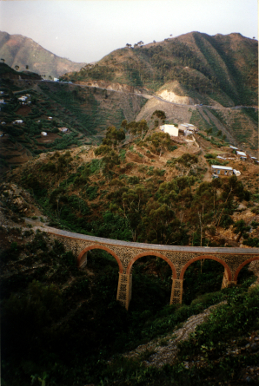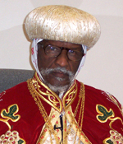
Courtesy Open Doors International
The tiny state of Eritrea, flanked by Ethiopia on one side and the Red Sea on the other, celebrated its 21st birthday May 24, its Independence Day a public holiday.
Yet beneath the official festivities, Eritrea’s 6 million people live under a regime that has earned a reputation as the most repressive in Africa.
Now an exiled human-rights group, Release Eritrea, reports that more than 1,000 Christians are currently in detention. The group bases its tally on phone calls to friends and colleagues in the country.
The jailed Christians are members of unofficial or ‘unregistered’ churches, which are under persistent attack from the regime.
“Our church leaders who were taken to prison in 2003/2004 have been detained for over 10 years now,” said Release Eritrea Director Berhane Asmelash. “Many continue to suffer health problems, although we praise God when we hear reports of their resolute faith and good spirit.”
An underground church leader, who has seen many in his congregation disappear into prison or exile, said Eritrea’s antagonism to Christianity is beginning to have generational effects.
“We trust God to safeguard them, but times are tough for their families, their elderly parents are dying and the young children they left behind are now coming of age fatherless,” the church leader said.
Officially, Eritrea is a secular state in which all citizens can practise their faith freely. Three main Christian denominations — the Orthodox, Catholic and Lutheran churches — and Islam are officially recognized. However, as Amnesty International has reported, in 2002 the government required all minority religious groups to register, and to hand over information about their finances and members. Most refused, and in 2003 the government began a crackdown against the growing evangelical churches, with church members arbitrarily detained during “home-worshipping” or at weddings. Amnesty said many were tortured or ill-treated in an attempt to force them to stop worshipping. Perhaps the worst afflicted have been members of the sect of Jehovah’s Witnesses, who have been detained for refusing military service. They were stripped of their citizenship.

Abune Antonios, in a 2006
photo.
Courtesy
Open Doors International
In 2007, the head of the Orthodox Church, Patriarch Abune Antonious, was removed from his position after criticising the Eritrean government for interference in church activities. Two priests accompanied by government security agents entered the Patriarch’s residence and confiscated his personal pontifical insignia. He was replaced by Abune Dioskoros — a development orchestrated by the Eritrean government. Patriarch Antonios, who has never been charged with any offence, remains under house arrest and strict state surveillance.
Tens of thousands of young Eritreans have fled the country, escaping across the border to Ethiopia or Sudan to face a difficult and uncertain future. Others have attempted to reach Europe, some of them drowning in the Mediterranean Sea on smuggler ships.
Eritrea is ruled by President Isaias Afewerki, who led the Eritrean People’s Liberation Front, a movement that won independence from Ethiopia in 1991, after 30 years of armed conflict. Then hailed as a hero, he soon turned dictator, first repressing soldiers demanding pay, then turning on religious dissenters and critics within the party. Today the Eritrean regime tolerates no dissent of any kind: there is no free media, no university, and even the ruling party — renamed the People’s Front for Freedom and Democracy — has not held a party conference for years.